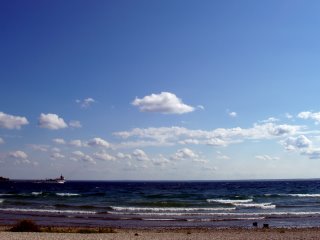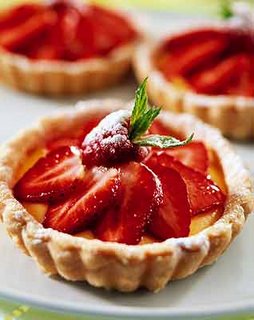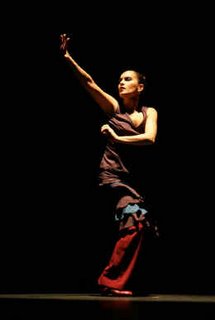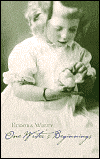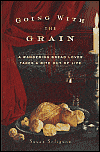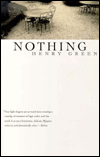Five
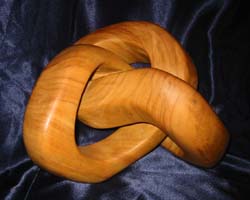 Today is my fifth wedding anniversary. I feel more sentimental about this one than all the others that came before. During the first three years of being married I mostly waited for the other shoe to drop; I was happier than I imagined I could be sharing my life with someone else, and in my heart I distrusted this happiness. I braced myself to have my first really bad argument with my husband and finally to look at him without being able to recognize the man I had wanted to marry. Hadn't I read about this in books a hundred times? I had read somewhere, too, that most divorces occur in the first three years of marriage; I kept this statistic like a weight inside me, to keep me grounded, to prepare me for the unhappiness to come.
Today is my fifth wedding anniversary. I feel more sentimental about this one than all the others that came before. During the first three years of being married I mostly waited for the other shoe to drop; I was happier than I imagined I could be sharing my life with someone else, and in my heart I distrusted this happiness. I braced myself to have my first really bad argument with my husband and finally to look at him without being able to recognize the man I had wanted to marry. Hadn't I read about this in books a hundred times? I had read somewhere, too, that most divorces occur in the first three years of marriage; I kept this statistic like a weight inside me, to keep me grounded, to prepare me for the unhappiness to come.But the unhappiness never came. The arguments we had never turned into bad arguments. I'm used to my parents' passionate, loud, no-holds-barred fights, and secretly I believed that a husband and wife couldn't live together for long without having them. It didn't matter, I thought, that you valued honesty and rationality above all else; the dam was going to break one day and all the honesty and goodwill and rationality in the world were not going to make any difference then. I was wrong; I was wrong, at least, about these five years. They've been the five best years of my life. And I'm shocked to find inside myself a strong, rock-solid confidence that the next five years will be just as good. I question and doubt everything, and especially my own convinctions. But this is the exception. My pessimism is forced to back down in the face of the evidence that these five years of marriage put before me. I can do it -- I can be a good wife, I can have a good marriage! It's a marvelous thing to have learned this about myself.
We were married early on a Friday morning at the courthouse in Old Town Orange. I sang "We're going to the chapel and we're gonna get married" on the way over to cheer myself up. I felt very alone, separate from my husband, but not in a negative way; I just had a stronger sense than usual of my own individuality. We said our vows in a very small dark room that smelled strongly of wood. I remember looking at the empty benches where family and friends are supposed to sit and feeling a mixture of relief and loneliness. I knew that it was the right thing to get married like this, just the two of us, to stay focused on the fact that this was a contract between me and my husband, that it was about us and anyone else was simply a distraction; but I also felt the need for encouragement, to see on my family's faces that I was doing the right thing. It is immensely important to me now that I got married without this encouragement; it impressed on me the seriousness of what was happening, the fact that I was entering this state of being married entirely by myself and had to deal with it entirely by myself.
I still get grief from my mom for not wearing a wedding dress and not having a proper wedding, with guests and cake and the giving away at the altar and the tears of happiness and the rest of that brouhaha. But I have no regrets. I didn't want any distractions from the reality of what was happening: that I was pledging myself to share the rest of my life with someone else. I was terrified of that. Five years later I'm much less afraid; it has even crossed my mind that in the years ahead I might enjoy myself even more than I already have. Imagine that.
I've made a chocolate cream pie and a blueberry-and-peach pie to celebrate. I'm going to light a candle and eat some blueberry pie (baked vegan just for me, by me) and marvel at how, some days, my life, in spite of myself, can be so thoroughly good.


